|
|
|
|
What is Currency?
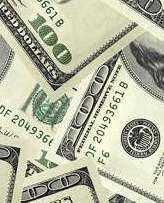 Currency is money (Coins and/or paper) that is used as a medium to exchange or trade. The money is issued by the government of a country through its central or federal bank for use as a legal tender/agreement for the trade. Countries have their currencies. For example, the currency of the US is the US dollar ($), for Britain, it is called British Pounds(£), the Japanese currency is called Yen(¥), Canadian currency is Canadian Dollar, the Chinese currency is the Yuan and the Indian Currency is the Indian Rupees. Many European countries recently decided to use a common currency, called Euros(€). Euros are used in Italy, Germany, Spain, France, Netherlands, and Belgium, amongst others. When you travel to a foreign country, you will need the currency of that country. So if you go to Japan, you will have to use their currency, Yen, to buy things. How will you get Yen? Well, you will “exchange” your money in US currency, i.e., US dollars, into Japanese Yens. How many Yen will you get for each US dollar? To answer this question and more, we need to learn about foreign exchange rates. We will discuss it in the coming weeks. Currency is money (Coins and/or paper) that is used as a medium to exchange or trade. The money is issued by the government of a country through its central or federal bank for use as a legal tender/agreement for the trade. Countries have their currencies. For example, the currency of the US is the US dollar ($), for Britain, it is called British Pounds(£), the Japanese currency is called Yen(¥), Canadian currency is Canadian Dollar, the Chinese currency is the Yuan and the Indian Currency is the Indian Rupees. Many European countries recently decided to use a common currency, called Euros(€). Euros are used in Italy, Germany, Spain, France, Netherlands, and Belgium, amongst others. When you travel to a foreign country, you will need the currency of that country. So if you go to Japan, you will have to use their currency, Yen, to buy things. How will you get Yen? Well, you will “exchange” your money in US currency, i.e., US dollars, into Japanese Yens. How many Yen will you get for each US dollar? To answer this question and more, we need to learn about foreign exchange rates. We will discuss it in the coming weeks.
What is the Foreign Currency Exchange Rate?
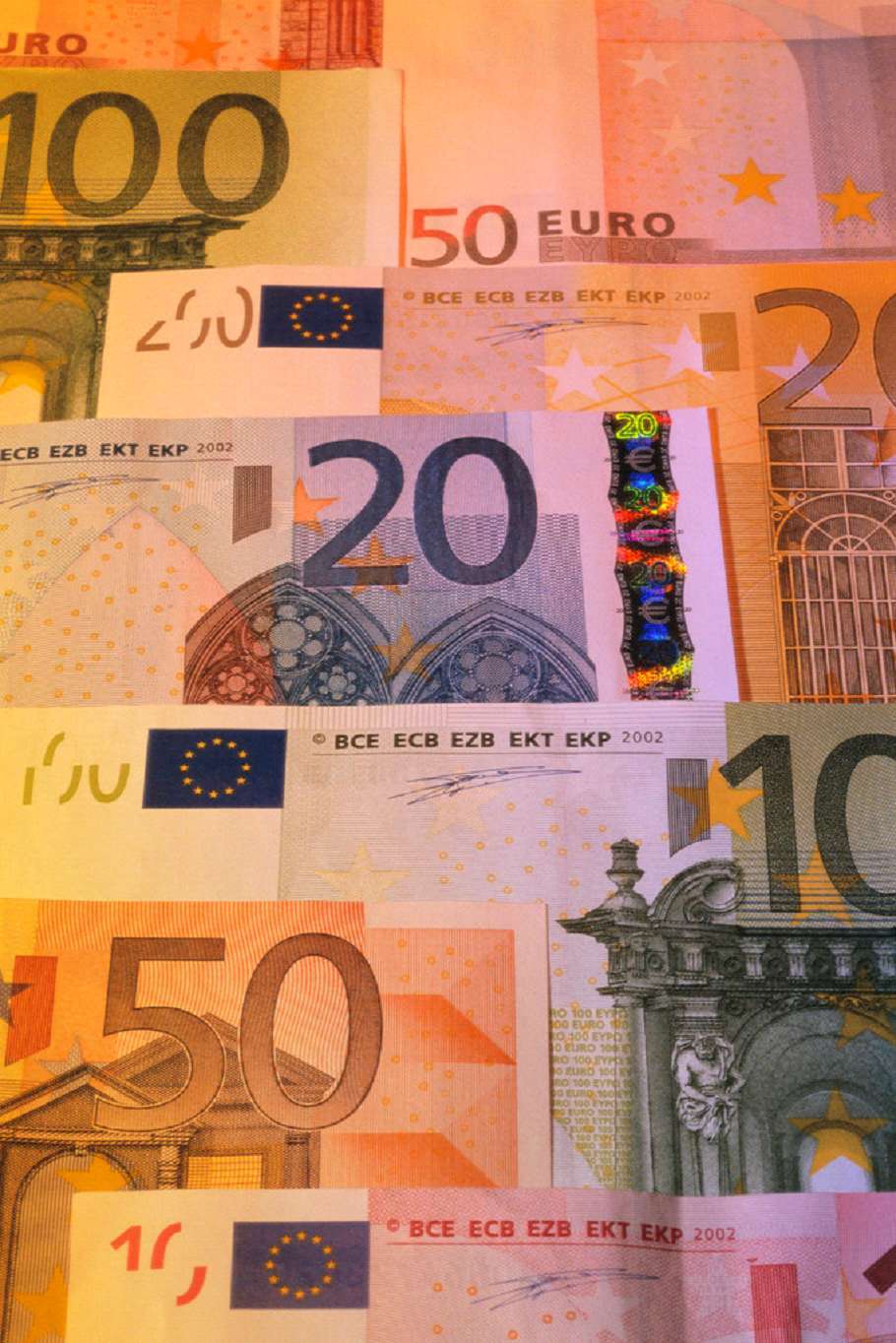 Normally, if you live in a country, you will need the currency of that country to buy things. So, if you want to buy an ice cream cone anywhere in the US, you will need US dollars, if you want to buy a burger in London, you will need British pounds, and if you need to buy a painting in Paris, you will need Euros. Normally, if you live in a country, you will need the currency of that country to buy things. So, if you want to buy an ice cream cone anywhere in the US, you will need US dollars, if you want to buy a burger in London, you will need British pounds, and if you need to buy a painting in Paris, you will need Euros.
The current volume of global travel and global trade is at its highest level in human history. People of one country travel to another country, or, buy things made in another country, therefore we need to learn about foreign currency exchange rates. The exchange of foreign currency is an old system for people to buy or sell the currency of another country. The rate at which one country’s currency can be sold or bought is called the Foreign Currency Exchange rate.
 Let us say you want to visit Japan. You will need Japanese currency, i.e., the Japanese Yen when you are in Japan. You can buy Japanese Yen by paying in US dollars, through a foreign currency exchange dealer (these dealers buy or sell currency of different countries.) For each US dollar, the dealer will give you a certain number of yens, calculated by the Exchange rate for yens per dollar for that day. Let us say you have one hundred US dollars and the exchange rate for Yen per Dollar is $1 = 115 Yen. So you can exchange $100 for 11,500 yen! Although you may suddenly feel very rich, you will soon realize that your wealth is short-lived. It will cost you about 150 yen for a soda pop in Japan, a hamburger may cost 500 yen in McDonald’s, and cab ride from the airport to your hotel may cost more than 5,000 yen. Let us say you want to visit Japan. You will need Japanese currency, i.e., the Japanese Yen when you are in Japan. You can buy Japanese Yen by paying in US dollars, through a foreign currency exchange dealer (these dealers buy or sell currency of different countries.) For each US dollar, the dealer will give you a certain number of yens, calculated by the Exchange rate for yens per dollar for that day. Let us say you have one hundred US dollars and the exchange rate for Yen per Dollar is $1 = 115 Yen. So you can exchange $100 for 11,500 yen! Although you may suddenly feel very rich, you will soon realize that your wealth is short-lived. It will cost you about 150 yen for a soda pop in Japan, a hamburger may cost 500 yen in McDonald’s, and cab ride from the airport to your hotel may cost more than 5,000 yen.
 How does the exchange rate change and why? We will talk about this in the coming week. Here are some key exchange rates for the week ending August 17th, 2007. One US Dollar ($) = 114.2 Japanese Yen(¥), = 0.7 European Euro(€), = 0.5 British Pound(£), = 7.6 Chinese Yuan, = 40.9 Indian Rupee (Rs.). You can also see the daily exchange rates in the business newspapers. How does the exchange rate change and why? We will talk about this in the coming week. Here are some key exchange rates for the week ending August 17th, 2007. One US Dollar ($) = 114.2 Japanese Yen(¥), = 0.7 European Euro(€), = 0.5 British Pound(£), = 7.6 Chinese Yuan, = 40.9 Indian Rupee (Rs.). You can also see the daily exchange rates in the business newspapers.
|
|
|
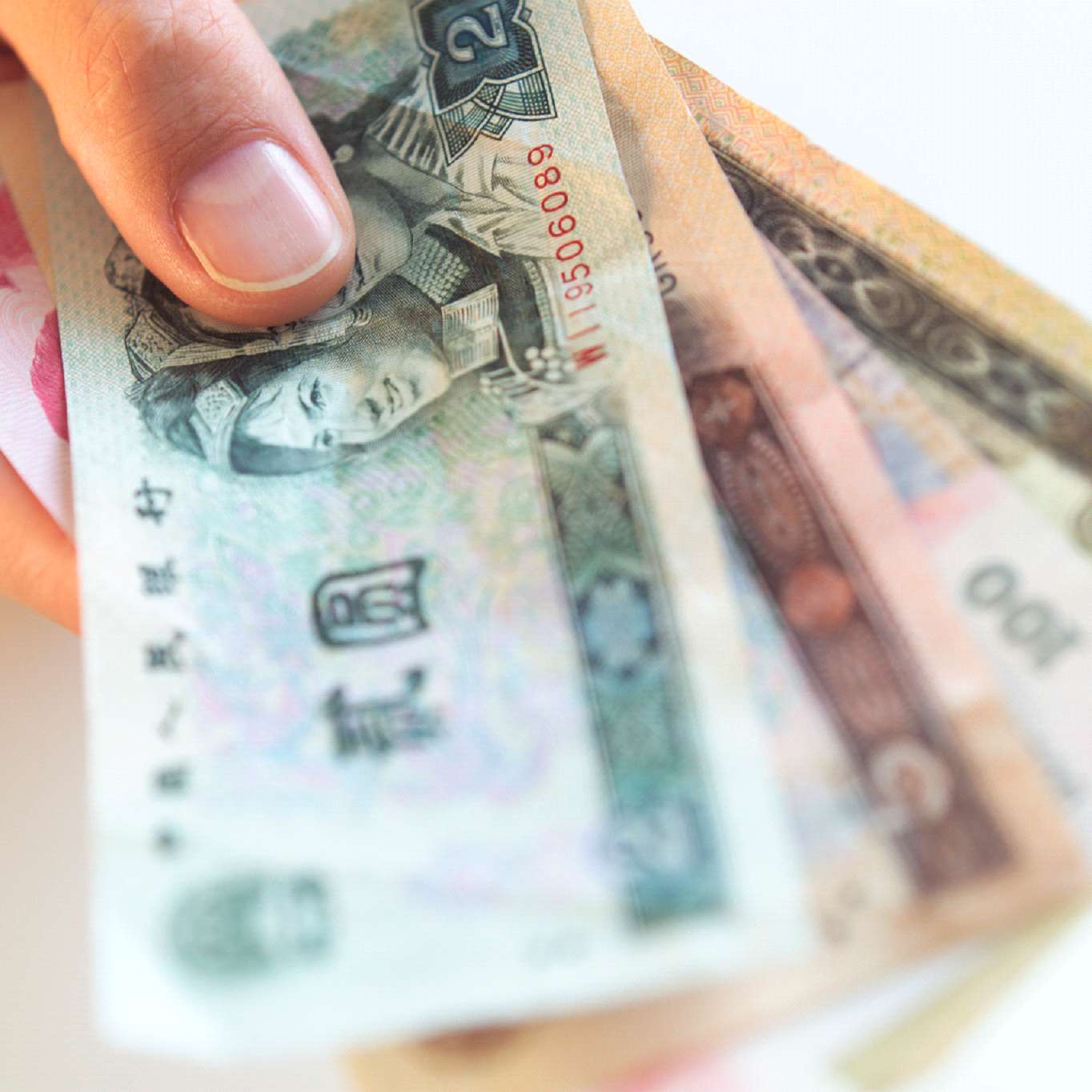 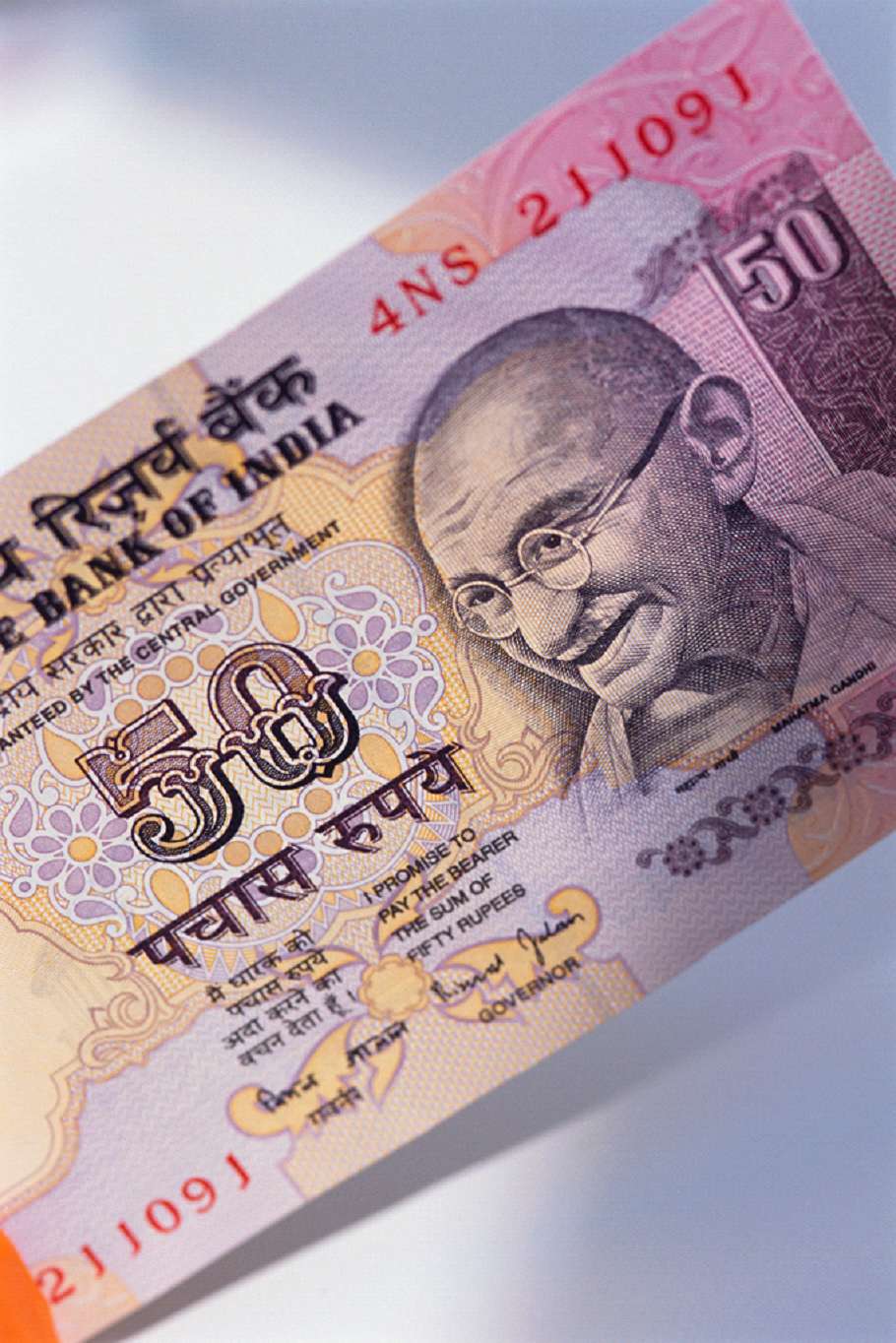 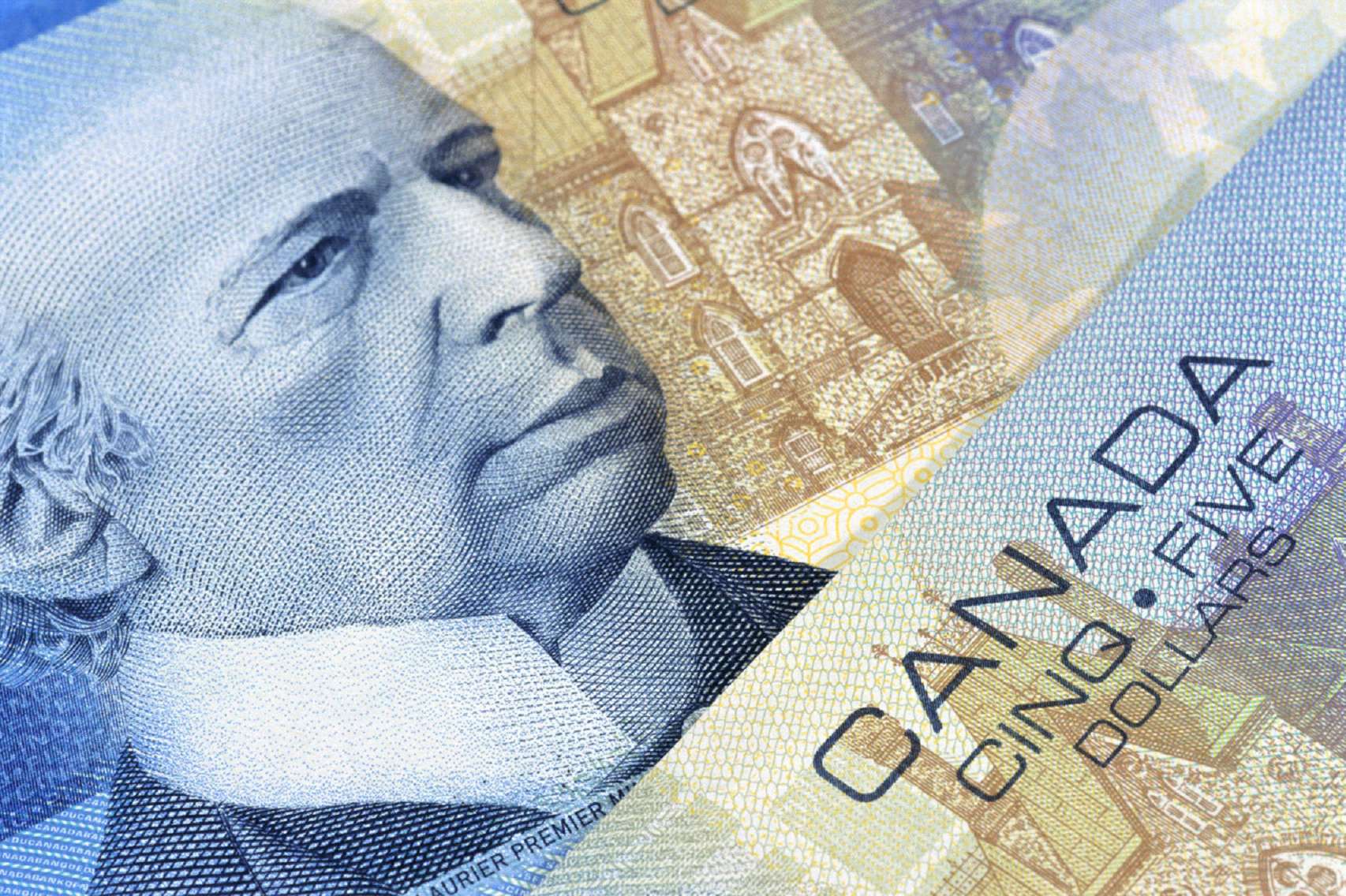
What is stronger or weaker foreign currency?
.jpg) We have been talking about foreign exchange in the past few volumes. In continuation, let us consider what is the meaning of stronger or weaker currency. Suppose you hear today in the business news that “Dollar was weak against the British pound today.” It means that today (in comparison to the exchange rate earlier) dollar has become cheaper to buy in British pounds. In other words, for each British pound, you would get, in exchange, more dollars. Alternately, for each dollar, you will get less British pounds. the dollar becoming weak against the British pound is the same as the British pound becoming stronger against the dollar. We have been talking about foreign exchange in the past few volumes. In continuation, let us consider what is the meaning of stronger or weaker currency. Suppose you hear today in the business news that “Dollar was weak against the British pound today.” It means that today (in comparison to the exchange rate earlier) dollar has become cheaper to buy in British pounds. In other words, for each British pound, you would get, in exchange, more dollars. Alternately, for each dollar, you will get less British pounds. the dollar becoming weak against the British pound is the same as the British pound becoming stronger against the dollar.
In this example, when the dollar becomes weak, in the short run British people would find it cheaper to buy things in the US, because, for each British pound they have, they now can exchange them for more dollars. For example, the exchange rate yesterday was 1 British pound (£) = $2.00. Today, when the dollar became weak, let us say the exchange rate became 1 British pound (£) = $2.10. Suppose your friend who lives in
London wants to visit you and finds that it costs $600 for an airplane ticket between Britain and the US. The cost of the ticket, in British pounds, at yesterday’s exchange rate was 300 British pounds, and at today’s exchange rate, it is 285.70 British pounds, or more than 14 British pounds cheaper.
What does the dollar slide mean?
 We noted in earlier newsletters that the US dollar had become weaker in the past few weeks. At this time, one Canadian dollar is worth 1.04 US dollar, and one Euro is worth 1.44 US dollars. The weakening of the American dollar against the Canadian dollar is especially remarkable, given that for most of the last two decades, one Canadian dollar was worth less than one US dollar. At one time, in the early nineties, the Canadian dollar had fallen so low, that it was worth about 67 American cents. We noted in earlier newsletters that the US dollar had become weaker in the past few weeks. At this time, one Canadian dollar is worth 1.04 US dollar, and one Euro is worth 1.44 US dollars. The weakening of the American dollar against the Canadian dollar is especially remarkable, given that for most of the last two decades, one Canadian dollar was worth less than one US dollar. At one time, in the early nineties, the Canadian dollar had fallen so low, that it was worth about 67 American cents.
What is the impact of weakening the US dollar? First of all, for US residents, imports will become costlier. So if you want to buy a bottle of Canadian Maple Syrup, you will have to pay more in US dollars, even though the cost of the syrup in Canadian dollars has not gone up. Imported cars will cost more. It also means that the US residents will find it more expensive to travel abroad. Since the US imports oil, the cost of oil is likely to go up leading to over increase in prices and higher inflation. The second impact is on foreigners. They will find US produced items cheaper to buy. So if a European wants to buy a Saturn car that is made in the US, he/she will have to pay less money now than before. Foreigners will find it cheaper to visit US, because the cost of a hotel room, airfare, museum fee, etc., will be less now, when converted into their currency, for example, in Canadian dollars or Euros.
On the upside, all this can have a beneficial impact in the short run on the US economy as US producers will be able to sell more goods. The US will also benefit from tourists visiting because these tourists will contribute to the revenue of American hotels, restaurants, museums, etc. |
|
|
|
What is the Economy? The word economy means everything related to the production and use of goods and services in an area. On a daily basis, we buy many things (products) that come from many businesses, such as food, drinks, toys, cars, etc. When we buy or not buy such products it affects businesses, the economy and all of us.
|
|
What is a Business? The business offers goods and services to customers for money. Businesses create jobs for people who work to make goods and or provide services for others who need them.
|
|
|
Who are the Workers? The people who work at the businesses are also called workers. Workers are paid money which they use to take care of their loved ones. When these workers are paid money they pay some money to the governments, called taxes, so that the government can provide the services to the communities where we live such as schools, police, fire stations, parks, roads, and many more.
|
|
|
What are Goods? Goods are things that you can see, such as toys, balls, dolls, candies, cereals, etc.
|
|
|
What are Services? Services are things that are done for others for money, such as, a barber giving you the service of hair cutting, a waiter serving you food at a restaurant, etc.
|
|
|
We use multiple information resources, such as websites, companies, stock exchanges, newspapers, libraries, and books.
|
